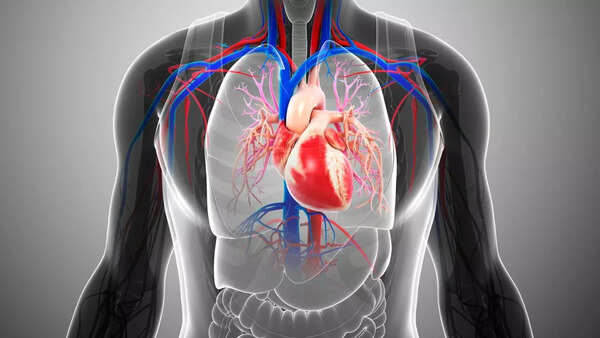Can We Reverse Heart Ageing? New Study Says Yes

Ageing affects every part of our body, including the heart. But a new study in Nature Materials gives us hope. It suggests that we might be able to reverse the heart’s ageing process.
Scientists found that the environment around heart cells plays a big role in how they age. This discovery could lead to new treatments for heart health. By focusing on the heart’s surroundings, researchers are opening new doors to prevent age-related heart decline.
Keeping your body fit is still the best way to keep your heart young. With smart daily choices and promising science, ageing doesn’t necessarily mean weakening—at least, not for your heart.
How the Heart’s Environment Drives Ageing
Researchers from the Mechanobiology Institute in Singapore studied the extracellular matrix (ECM). The ECM is like a framework of proteins and molecules that support heart cells. It helps maintain tissue integrity, enables repair, and sends key signals.
As we age, the ECM becomes stiffer and less elastic. This can make heart cells work poorly, leading to decreased pumping efficiency and a higher risk of heart disease. While most age research focuses on cells, this study highlights the ECM’s role in ageing.

New Study Shows Heart Ageing Can Be Reversed
Singapore researchers created a lab model called DECIPHER. This system uses rat heart tissue and gel that mimics a young or old ECM. They tested how heart cells respond to different ECM environments:
- Young cells in an old ECM showed impaired function and signs of ageing.
- Old cells in a young ECM performed better, like young cells.
These findings suggest that the environment around heart cells plays a big role in their ageing and behavior.
Reversing Heart Ageing Starts Outside the Cells
Assistant Professor Jennifer Young led the study. She said, “Most ageing research looks only at how cells change. We looked outside the cell, and that changed everything.”
This new approach could change how scientists tackle age-related conditions. Instead of focusing on cells, they might develop therapies that target the ECM, rejuvenating the environment in which heart cells grow.
Tips for a Younger Heart
Here are some lifestyle habits that help maintain heart function and slow ageing:
- Exercise regularly: Aim for at least 150 minutes of aerobic activity each week. This keeps blood vessels elastic and helps maintain a healthy ECM.
- Get enough sleep: Aim for 7–9 hours of sleep each night. Poor sleep is linked to high blood pressure, inflammation, and poor heart function.
- Avoid tobacco and limit alcohol: Both can promote heart ageing and harm the ECM. Avoiding or reducing them can greatly improve heart health.

Manage Stress
Chronic stress causes inflammation and hormonal imbalances that can affect heart cells and their environment. Meditation, mindfulness, and spending time outside can help reduce stress.

Eat a Heart-Healthy Diet
Diets like the Mediterranean or DASH diet, rich in fruits, vegetables, whole grains, and lean proteins, can lower inflammation and support overall heart health.
Disclaimer: The information in this article is for educational purposes only. Always consult a healthcare provider before making any changes to your lifestyle, diet, or treatment plans.



